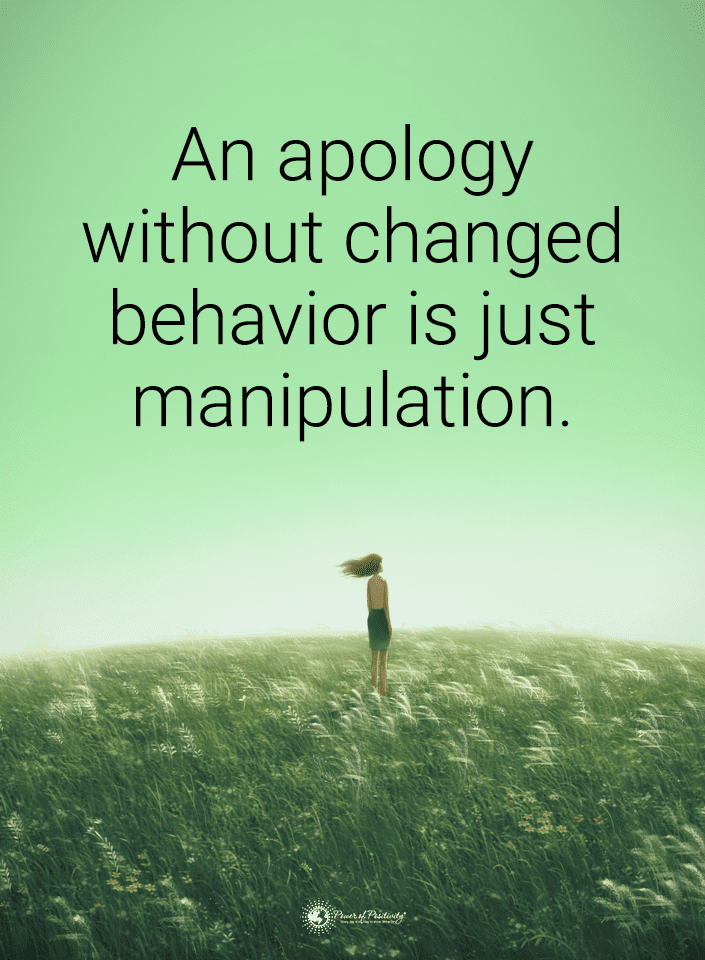The environment you grew up in can significantly influence your emotional and mental development. As such, it’s not surprising that your parental relationships can affect the romantic relationships you become involved in later in life.
If your mother acted in toxic ways when raising you, this likely left you with some issues that seep into new relationships. Now, what you have to do is recognize how your mother’s treatment has affected your present.
This is a valuable action, as it can provide insight into your relationships. You may often have romantic relationships that fall apart quickly and painfully. You may avoid these types of connections altogether. Additionally, you may even notice toxic behaviors in yourself.
7 Behaviors A Toxic Mother Shows That Causes Children to Have Relationship Problems
Luckily, these experiences are not singular, and you are not alone in overcoming them, so there is information on common patterns from these childhoods.
1. A Lack Of Healthy Maternal Bond Leads To The Mythologization Of Romance
It’s true that when you have a toxic mother, imagining life in a less dysfunctional family is difficult. But that doesn’t mean you don’t subconsciously crave a healthy, close relationship – the kind you may have seen your friends enjoying with their mothers.
The problem is that you don’t know what a positive, healthy relationship entails. If your mother acted in unhealthy ways toward you, she likely didn’t have a great relationship with your father. This creates a skewed idea of what romance is supposed to be; as such, you might start to mythologize romance.
Essentially, this causes you to be too much of a perfectionist when seeking romance; you begin subconsciously looking for a partner who reminds you of your idea of what the perfect parent may be. This can cause you to:
- Be overly critical of a partner’s mistakes
- Have a too-long list of deal-breakers
- Decide to break off a relationship at the first sign of trouble
- Become angry or depressed when you realize this type of relationship is nonexistent
According to Licensed Clinical Social Worker and psychotherapist Sheri Heller, the cycle of longing and rage you may feel from this scenario can be especially damaging in the long run. It can even lead you to believe that a good romance doesn’t and can’t exist.
2. A Lack Of Respect For Boundaries Leads To More Boundary Violation
Many toxic parents do not respect the boundaries of their children. There’s a difference between being strict, as many parents are, and severely violating their boundaries. It is possible to be firm and authoritative without walking all over a child.
A child who grows up in these situations often does not know how to set healthy, positive boundaries. Boundaries are essential to healthy interactions and romantic, spiritual, or familial relationships. For romantic partnerships, this can cause problems that cause you to:
- Feel uncomfortable but do not want to say anything about it for fear of repercussions
- Never articulate boundaries to a partner but lash out when they are unknowingly crossed
- Be unable to enforce and maintain consistent boundaries with a partner
- Become susceptible to abusive or manipulative relationships that take advantage of your lack of boundaries
You may also have trouble respecting other people’s boundaries since you grew up believing that they had no meaning. This is, however, a less common outcome, as most toxic mothers become extremely angry and abusive when their lines are crossed.
3. Unrealistic Expectations On You Lead To Unrealistic Expectations Of Partners
Many toxic mothers have incredibly unrealistic expectations of their children. As much as you tried, you likely had difficulty meeting any of these ridiculously high standards and were unfairly punished whenever you failed – which was all the time, given the impossibility of those expectations.
Sadly, these expectations are carried forward into the rest of your life. Not only may you continue to hold yourself to impossible standards, causing feelings of worthlessness and depression, but you may also start to expect these things from others around you.
This can cause you to exhibit toxic attitudes within romantic relationships. You expect them to do what your mother expected you to do. This can lead to very unhealthy relationships due to the following issues:
- You feel dissatisfied with everything your partner does or doesn’t do.
- You worry that your partner will leave you because you aren’t meeting your high expectations.
- Your partner may feel controlled or trapped within these expectations.
- Your standards are too high for anybody to reach.
- You will feel disappointed by romantic endeavors and continue to seek non-existent perfection.
- You can become abusive and manipulative towards partners who do not comply.
4. Bad Communication Leads To More Bad Communication
Communication in a toxic household with a toxic mother can be tumultuous and difficult to navigate. It was likely ineffectual, didn’t usually result in anything good, and was altogether very unhealthy. For example, your mother may have:
- Said something but meant something else, then became angry when you didn’t pick up on what she meant.
- Neglected to communicate about anything important, expecting you to read her mind and then punishing you for being unable to do so.
- Ignored your attempts at communication or refused to communicate altogether.
- Belittled, invalidated, made fun of, or become angry at your attempts at communication.
- Pretended to listen to your communication, only to disregard it soon after.
The lack of respect shown to your attempts at communication can affect your romantic relationships much later in life in the following ways:
- You may have trouble communicating with a partner about what you need.
- You may frequently give your partner the cold shoulder. Additionally, you may perform other toxic, non-communicative actions.
- You may drop hints or say what you don’t mean. Or you might expect a partner to understand you instead of communicating effectively.
- You may be unable to respect your partner’s communication due to fear that they secretly mean something else.
5. Untrustworthy and Toxic Mothers Lead To Trust Issues
Children are supposed to be able to trust their parents. If your mother made that impossible, there are likely some residual issues you face today that indicate how difficult it was for you.
When a child learns that their mother is unreliable and cannot be trusted, they learn to protect themselves and cope. They become secretive and guarded, and go to great lengths to survive and protect themselves.
Unfortunately, unlearning these behaviors is very, very difficult. In romantic relationships, it can cause you to:
- Become easily jealous and angry.
- Do not trust your partner’s words easily.
- Disbelieve compliments and kindness.
- Snoop around in your partner’s items.
- Constantly fear a partner backstabbing or hurting you.
- Shut out your partner and refuse to confide in them.
- Lie about small things due to a perceived threat, causing you to become untrustworthy.
These are all very unhealthy habits within romantic relationships. You must unlearn and replace them with positive thinking and good communication – but this is easier said than done. A therapist may be able to help you on your journey.
6. A Lack Of Validation Leads To Validation-Seeking Behavior
When a child grows up, they learn many things for the first time. Feeling encouraged in their curiosity, the pursuit of knowledge, and success can help create a more positive development for the child.
Toxic mothers do not provide this validation. They do not provide advice well, they disagree with their kids, and they do not affirm their actions or assure them. According to licensed clinical social worker Jamie Kreiter, this can cause a child to become “starved” for this kind of validation, leading to self-destructive habits that hinge on affirmation in romantic relationships.
This means you might struggle with severe self-doubt and insecurity that causes you to demand the validation of your partner through any means constantly. You may become excessively jealous of minor things or gravely upset by the slightest lack of validation.
7. The Unhealthy Dynamic Leads To Unhappiness In Healthy Ones
When you grow up in a toxic relationship with your mother, it’s all you know. It’s the only form of affection and loves you received as a child – unhealthy, selfish, fake love. As such, you may crave this same love style in your relationship dynamics, says licensed mental health clinician Celeste Viciere.
Not only does this mean feeling unhappy in healthy and secure relationships, but it also means seeking out toxic partners to fulfill cravings for that kind of treatment. You have been conditioned to expect a certain dynamic from relationships, and everything goes haywire when you don’t receive it.
Your mind does not feel used to healthy interactions. It can feel strange and foreign to you to be in positive relationships; this can cause you to let go of good partners in favor of bad ones without even realizing the pattern.
Final Thoughts On Some Behaviors A Toxic Mother Shows That Causes Problems In A Relationship
Toxic mothers rob their children of happy, healthy lives, and they betray their responsibilities to their families. Unfortunately, you cannot change the environment you grew up in or change the past.
However, despite everything you have been through, it is endlessly crucial that you continue to grow to overcome the issues of your past. Remaining hung up on the maternal bond you never had can hold you back, keeping you stuck in the past. Your anger is valid, but it needs to be worked through with strength and positive thinking.
If you are unaware of how this old toxicity affects you, it is almost impossible to quell since you cannot stop or fix something you don’t even know about. Don’t be afraid to seek professional help to aid you in unraveling your past. There is no shame in seeking help!
The first step to overcoming the toxicity of your past is understanding where they stem from and how it can explain your current actions. Awareness and knowledge are incredible weapons; armed with them, you can move past your upbringing and become a good partner in new relationships.
Luckily, these experiences are not singular, and you are not alone in overcoming them, so there is information on common patterns from these childhoods.


















